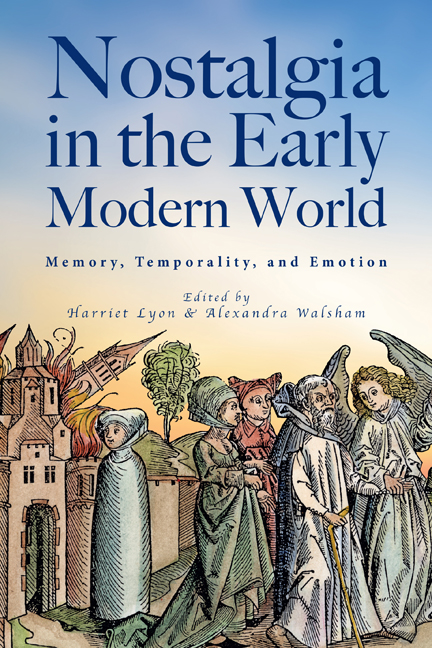8 - Family and Nostalgia in the Early Modern Iberian World
Published online by Cambridge University Press: 11 January 2024
Summary
Family, in the modern world, is one of the realms of nostalgia. Marcel Proust's ‘madeleine moment’ was essentially a moment of family remembrance. But in the nineteenth and early twentieth centuries, the notion of family – or at least a certain kind of family – went beyond the memories of childhood and absent close relatives. It was also a privileged space for the expression of longing for the status which noble lineages had enjoyed in the Old Regime, a longing that was often conveyed through memories of one's forebears and the family home. In the early modern period, the family – and not just the noble family – was shaped by two dimensions: the temporal, provided by lineage; and the spatial, represented by the ancestral home. Nostalgia was thus defined by these two elements, all the way from its primary meaning relating to homesickness, to the later, modern-day sense of yearning for a lost past.
The word ‘nostalgia’ was absent from everyday vocabulary for most of the early modern period. In seventeenth-century Spain, the equivalent word for the pain caused by the absence of loved ones might have been ‘melancolía’. In the early years of the century, for instance, Miguel de Castro wrote about the emotion elicited by remembering his former Neapolitan lover as a ‘strange melancholy’ and a ‘feeling of absence’. Despite the lack of the term ‘nostalgia’, homesickness and yearning for the past seem to have been present in many early modern narratives connected to objects, buildings, images and writings around the family. As Kristine Johanson has noted, although nostalgia appears to have been relevant at various times in western history, it is also clear that the feelings we associate with it – longing and homesickness – have probably changed over time. The study of these variations may benefit from a historical analysis of nostalgia in relation to the family, bearing in mind not only that the early modern notion of family was in many ways vastly different from today’s, but also that different terms and forms of expression were used before the rise of sentimental language in the eighteenth century.6 Moreover, such feelings were often voiced in relation to family identity because, as Fred Davis has observed, nostalgia is ‘deeply implicated in the sense of who we are’.
- Type
- Chapter
- Information
- Nostalgia in the Early Modern WorldMemory, Temporality, and Emotion, pp. 187 - 206Publisher: Boydell & BrewerPrint publication year: 2023

